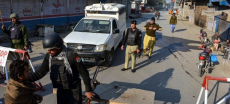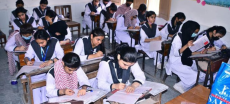[vc_row][vc_column][vc_column_text dp_text_size=”size-4″]Pakistan has demanded the United Nations Security Council (UNSC) to conduct a thorough investigation to find out how the Tehreek-e-Taliban Pakistan (TTP) acquired advanced military equipment.
At the UNSC’s United Nations Assistance Mission in Afghanistan (UNAMA) briefing on Afghanistan, Ambassador Munir Akram — Permanent Representative of Pakistan to the United Nations — said Pakistan faced a major threat from the TTP and its offshoots for their organised cross-border terrorist attacks into the country.
He said the attacks caused considerable loss to Pakistani civilians as well as soldiers and damage to the military and other installations.
“We have lost hundreds of our brave soldiers and civilians in these attacks just this year alone and last week, TTP affiliated group carried out a heinous attack on our security personnel in Dera Ismail Khan, resulting in the loss of more than 23 precious lives.
“These attacks have become more lethal and sophisticated, since the TTP terrorists have acquired and use advanced military equipment. These weapons obviously originate from the considerable stocks left behind by foreign forces. Yet, the question is: how did the TTP – a listed terrorist organisation –secure these weapons.
“Pakistan demands that the United Nations – whether UNAMA or another agency – conduct a thorough investigation to elicit how these weapons got in the hands of the TTP and to identify ways of retrieving them,” he said.
Acknowledging some stability and betterment in Afghanistan’s economy, the Pakistani envoy said any process of engagement with the Afghan interim government must be constituted on the basis of its response to the core concerns of the international community.
Read More: The COAS conveyed Pakistan’s goal to become a hub for connectivity and development.
He said while the interim authorities had reported some success in the fight against Da’esh, the fact was that a number of terrorist groups were living in Afghanistan, evidently under the protection of the Afghan interim government.
It was clear that the TTP had been given free rein to conduct cross-border attacks against Pakistan’s border outposts and other installations, he said. However, without naming the key nemesis, he said Pakistan also had clear evidence that the TTP received support from its main adversary.
“The Security Council should invigorate the work of the 1988 Committee to secure action by the Afghan Interim Government against all these terrorist groups in Afghanistan and empower the monitoring team to analyse and inform the Committee and this Council about progress made in the context of counter terrorism in Afghanistan.
“Any process of engagement with the Afghan Interim Government should be conducted on the basis of the action that it takes against these terrorist organisations. Else, we will see the recurrence and proliferation of terrorism from Afghanistan as happened prior to 9/11, threatening not only the region but the entire world,” he said.[/vc_column_text][/vc_column][/vc_row]











